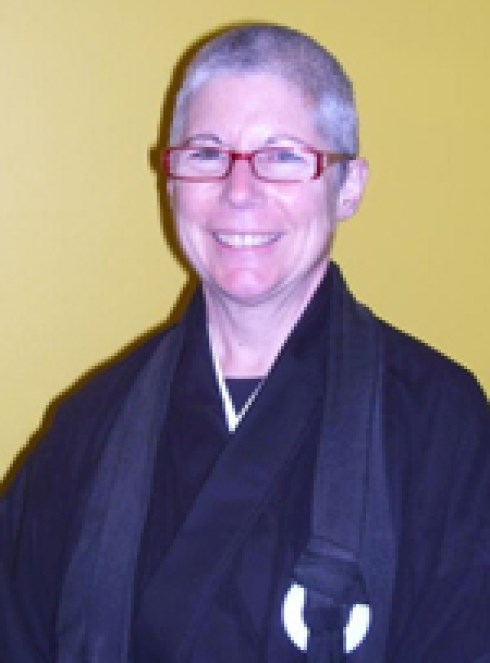 Mindfulness, such a big push in the media these days, has been used among other things to reduce stress, anxiety, and migraines, perhaps give us a sense of peace for a few moments a day. These are good things, but mindfulness is also taught to soldiers to make them better killers. It is pushed by big business to put the onus of responsibility on the very workers the businesses have stressed by their all-out race to make investors happy.
Mindfulness, such a big push in the media these days, has been used among other things to reduce stress, anxiety, and migraines, perhaps give us a sense of peace for a few moments a day. These are good things, but mindfulness is also taught to soldiers to make them better killers. It is pushed by big business to put the onus of responsibility on the very workers the businesses have stressed by their all-out race to make investors happy.
In a tragic twist of irony, mindfulness is used to calm the overworked Silicon Valley inventors whose job it is to create new and better apps to amuse us. As a result, mindfulness, a tool of awakening, is being used to perpetuate our massive distraction from the major problem of our times: climate change.
So says Ron Purser the author of “McMindfulness: how capitalism hijacked the Buddhist teaching of mindfulness”, in an interview with Mary Hynes on CBC Radio’s Tapestry, “a weekly guide through the messy business of being human.”
I resonate with what he says. As a Buddhist priest involved in teaching meditation for the last eight or nine years, I have seen meditation and mindfulness increasingly advertised as a means to reduce stress and anxiety. It is being taught by well-meaning people, without regard to the context of the original meditation traditions.
Yes, it does work for reducing stress, and making people happier. But what if this is done at the expense of necessary social change? Why should the onus be on the upcoming generation to reduce their own stress? Couldn’t we instead be investigating and improving our present-day culture of denial and over-consumption, which is headed for disaster?
All the major world religions have “tried and true” ethics teachings, which help the practitioner reflect on their behaviour and become more mature members of society. Maturity shows up as responsibility, awareness of others, forgiveness, humility, equanimity, flexibility, generosity, gratitude, willingness to grow, just to name a few characteristics.
Mature societies produce mature leaders, be they CEOs or political leaders. These leaders will exhibit less reactionary behaviour and anger, more compassion, understanding, foresight, planning for the future, and use of the precautionary principle.
With respect to Buddhism, the teaching of meditation is embedded in a whole training matrix called the Noble Eightfold Path. This consists of the 3 branches devoted to developing Ethics (Right Speech, Action, and Livelihood), Meditation (Right Effort, Mindfulness, and Concentration), and Wisdom (Right View and Resolve). These paths are practiced all at once, and are not completed even after years of investigation. In fact the process involves an ongoing maturation rather than a goal with a finish line.
Briefly, what are Right Speech, Right Action, and Right Livelihood?
Right Speech: abstaining from doing harm through speech, thinking about why you are talking, staying silent when you don’t have anything to say.
Right Action: abstaining from harming, killing, this of course includes actions that will lead to extinctions, environmental collapse, and climate change.
Right Livelihood: abstaining from harming and killing as ways of making a living.
Sincere reflection on Right Speech, Right Action, and Right Livelihood may over time lead to a shift in how we live as individuals and how we live together on this small planet. It is the path of harmony, learning to see a bigger picture, and letting go of our obsession with our little selves.
This Noble Eightfold Path is not dogmatic, it is investigatory, based on seeing things as they are, and then doing one’s best to be of benefit.
In it lies the promise that another way is possible.
Bio: As we are all Treaty people here in Canada, we are invited to find out more about our treaty responsibilities. In my bio below, I’m starting to learn the incredible variety of Indigenous cultures by naming some of the traditional lands I’ve lived on; I start to realize that the treaties are real; and I grapple with the idea of terra nullius (nobody’s land). This is the profound deception that this land was empty when my ancestors arrived. Canada was founded on this lie, but now that we, as a society, see the deception, there is no going back:
 Soshin McMurchy is the daughter and granddaughter of settlers of English and Scottish descent. Born on Treaty 6 territory, she has lived on the traditional land of the Huron-Wendat, the Seneca, and the Mississaugas of the Credit River; the traditional and present territory of the ‘Namgis First Nation; and currently lives, loves, and works on the unceded Coast Salish territory of the Lekwungen and W̱SÁNEĆ nations. She was ordained as a Zen Buddhist priest in 2011, works at the public library, and volunteers with both Zenwest Buddhist Society and UVic Multifaith Services.
Soshin McMurchy is the daughter and granddaughter of settlers of English and Scottish descent. Born on Treaty 6 territory, she has lived on the traditional land of the Huron-Wendat, the Seneca, and the Mississaugas of the Credit River; the traditional and present territory of the ‘Namgis First Nation; and currently lives, loves, and works on the unceded Coast Salish territory of the Lekwungen and W̱SÁNEĆ nations. She was ordained as a Zen Buddhist priest in 2011, works at the public library, and volunteers with both Zenwest Buddhist Society and UVic Multifaith Services.
You can read more articles on our interfaith blog, Spiritually Speaking, HERE
Photo by Natalia Figueredo on Unsplash


